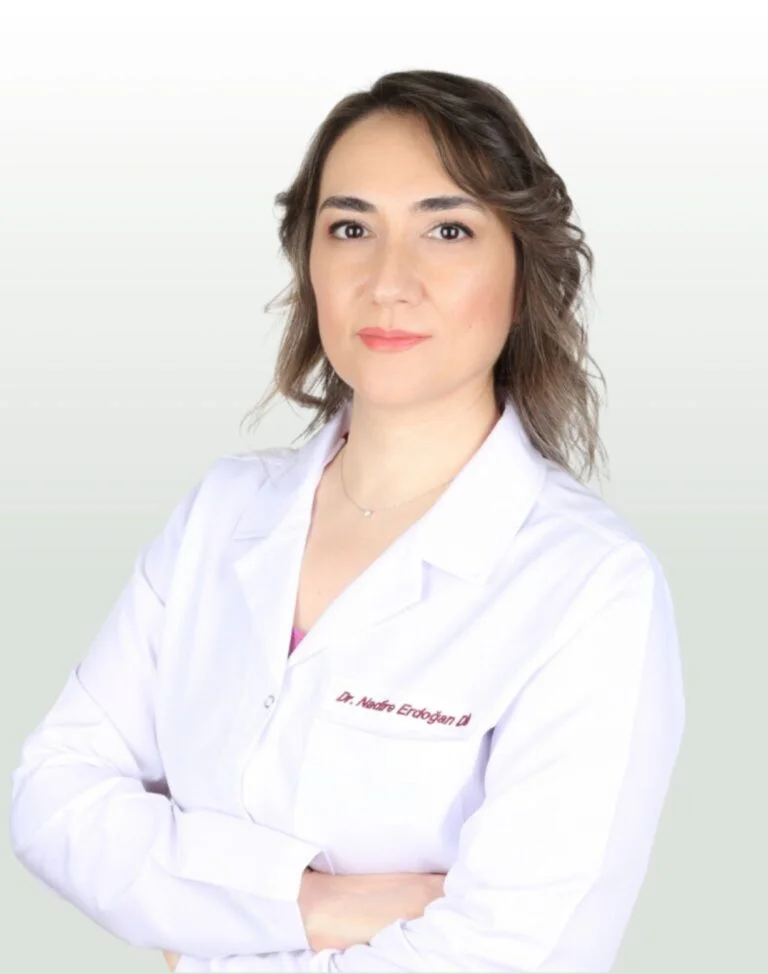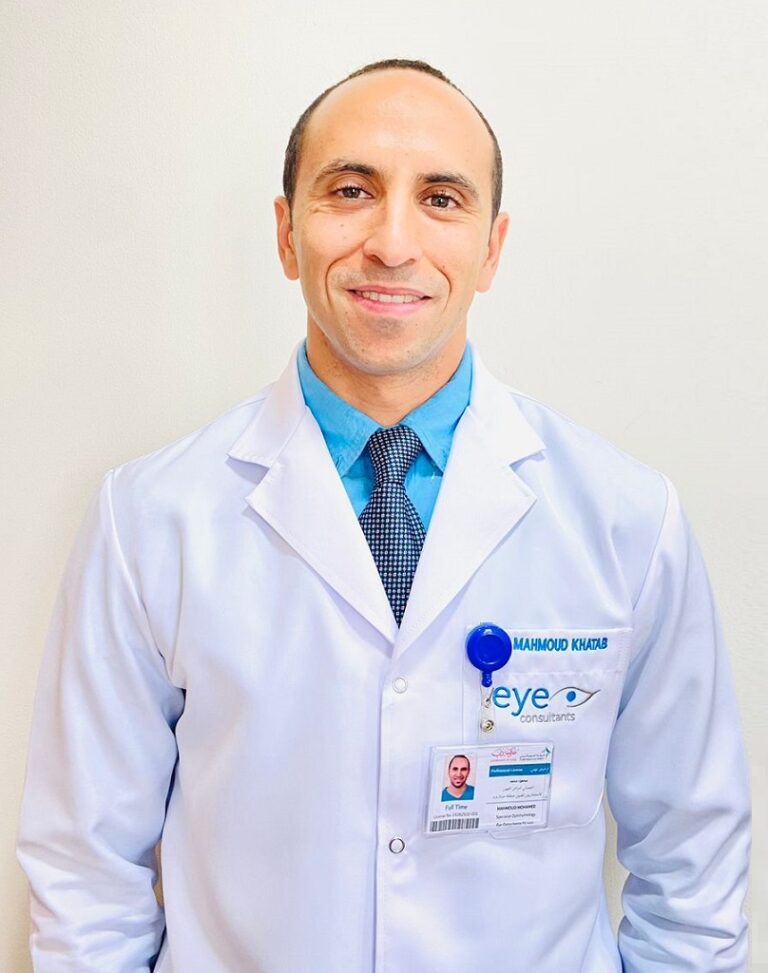Al Razi Bldg No. 64, Block C, 1st Floor, Unit 1017, Healthcare City, Dubai
Visit us
Myopia
Myopia, or nearsightedness, is a common vision condition where distant objects appear blurry. It is caused by the eyeball’s elongation or the cornea’s steep curvature. Myopia often develops in childhood and can progress until the mid-20s. It can be corrected with eyeglasses, contact lenses, or refractive surgery, and regular eye exams are important to manage and monitor myopia effectively. Reducing the risk of associated eye health issues is crucial as myopia worsens, such as retinal detachment, glaucoma, and cataracts.
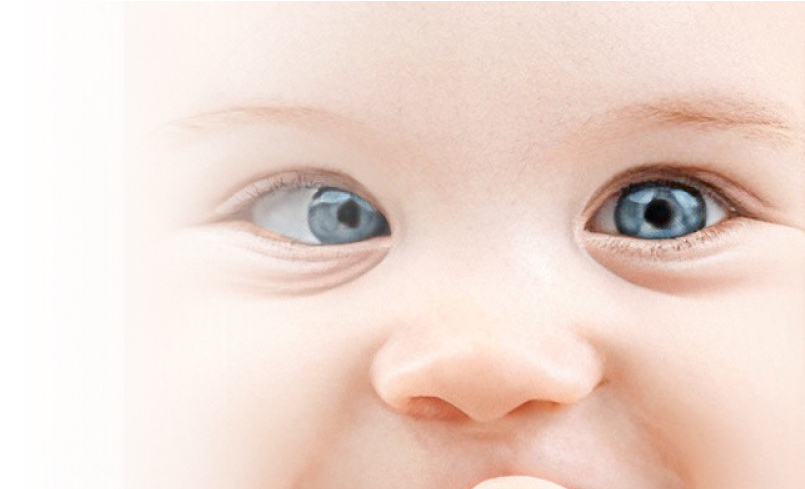
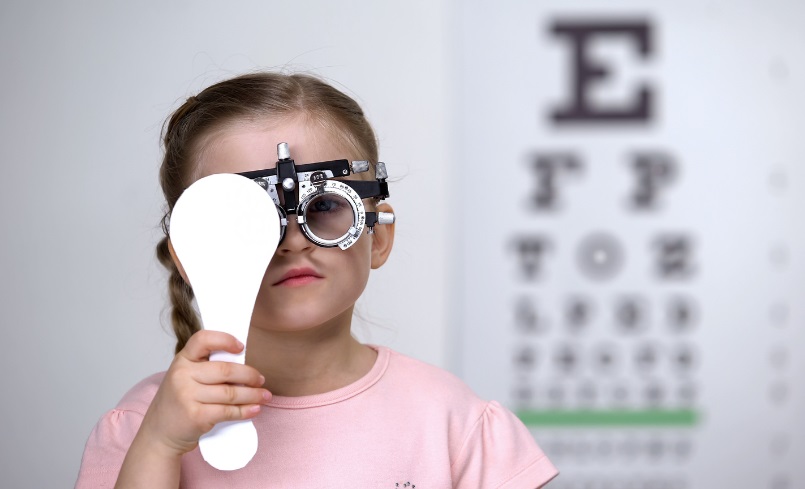
What is MYOPIA?
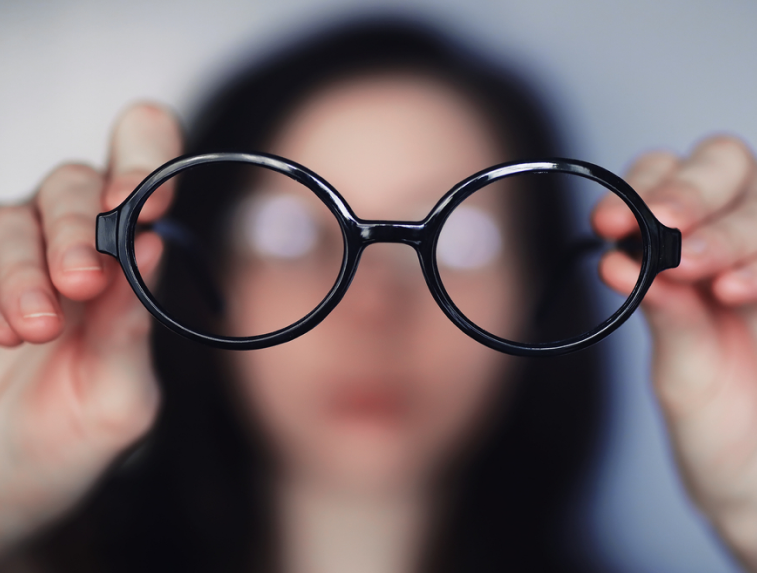
What Is Myopia?
Myopia, also known as nearsightedness, is a common refractive error that occurs when the eyeball elongates, causing light to focus in front of the retina instead of directly on it. This optical misalignment results in blurred vision when looking at distant objects, while close objects remain clear and easy to see.
Myopia typically manifests during childhood, often first detected when a child begins school. As a child grows, the condition tends to progress, making regular vision checks essential for timely adjustments to corrective lenses. It’s important to note that myopia doesn’t follow a one-size-fits-all pattern; its progression can vary significantly among individuals. For many, the condition stabilizes in the late adolescent years, generally in the early 20s.
What Causes Myopia?
Myopia onset is multi-factorial: Heredity, Lifestyle & other Unknown factors
Heredity: Parental Myopia1
Two myopic parents: ~ 6x risk
One myopic parent: ~ 3x risk
~when compared to children with no myopic parents
What causes MYOPIA?

Lifestyle

Lifestyle
The Risks of Myopia
As myopia progresses with age, it could develop into high myopia (> -5.00D) by the time myopia stabilizes in the late teens
In high myopia (>5.00D), the excessive increase in axial length could lead to:
Thinning of tissues inside the eyes (retina and sclera)
Tearing of the retina
Degeneration at the macular
The Risks of MYOPIA
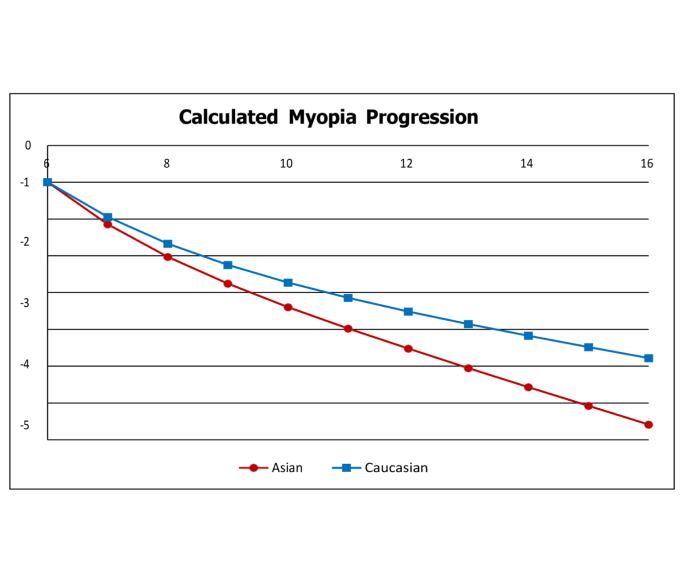
Why Myopia Matters?
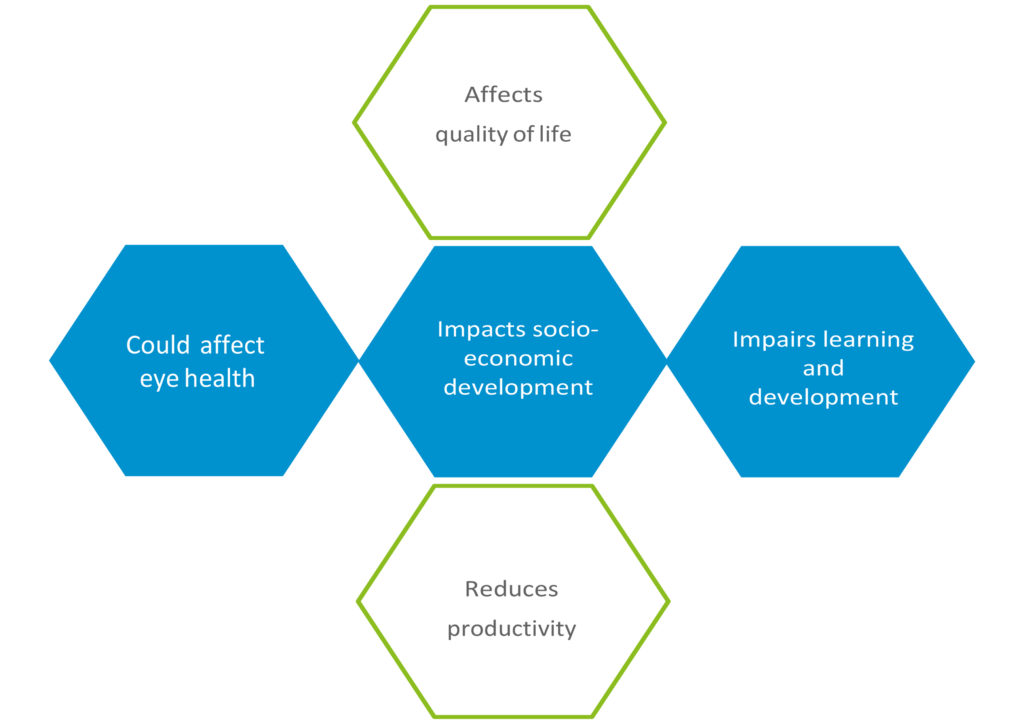
Why Focus On Myopia Management For Children?

The Risks Of Myopia
People with high myopia are at a higher risk of pathological complications later in life
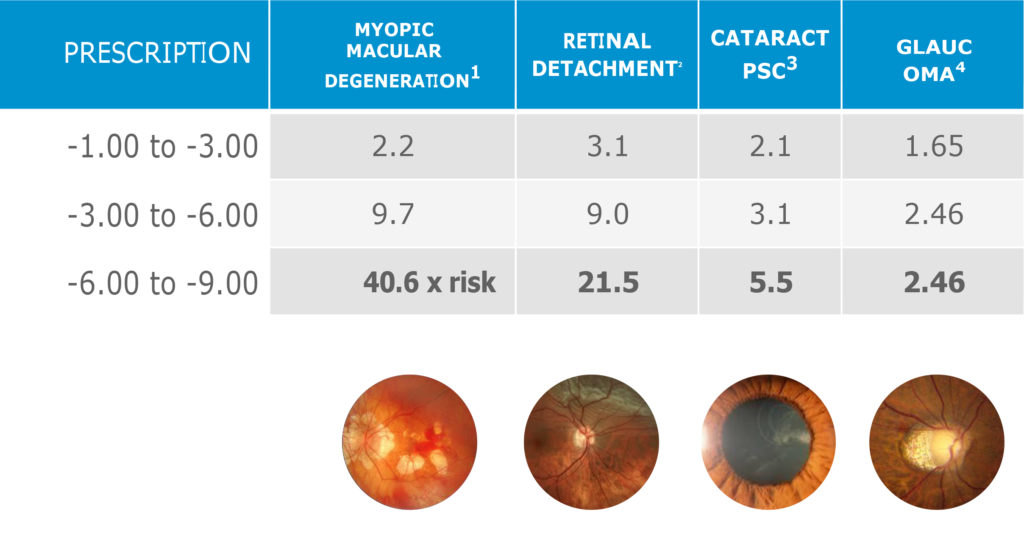
Myopia – A Rising Epidemic Globally
Myopia prevalence is increasing around the world. By 2050, it is estimated that half the world population would be myopic.
MORE CHILDREN ARE GETTING MYOPIA AT YOUNGER AGES
The earlier children get myopia, the higher the probability of developing high myopia later in life
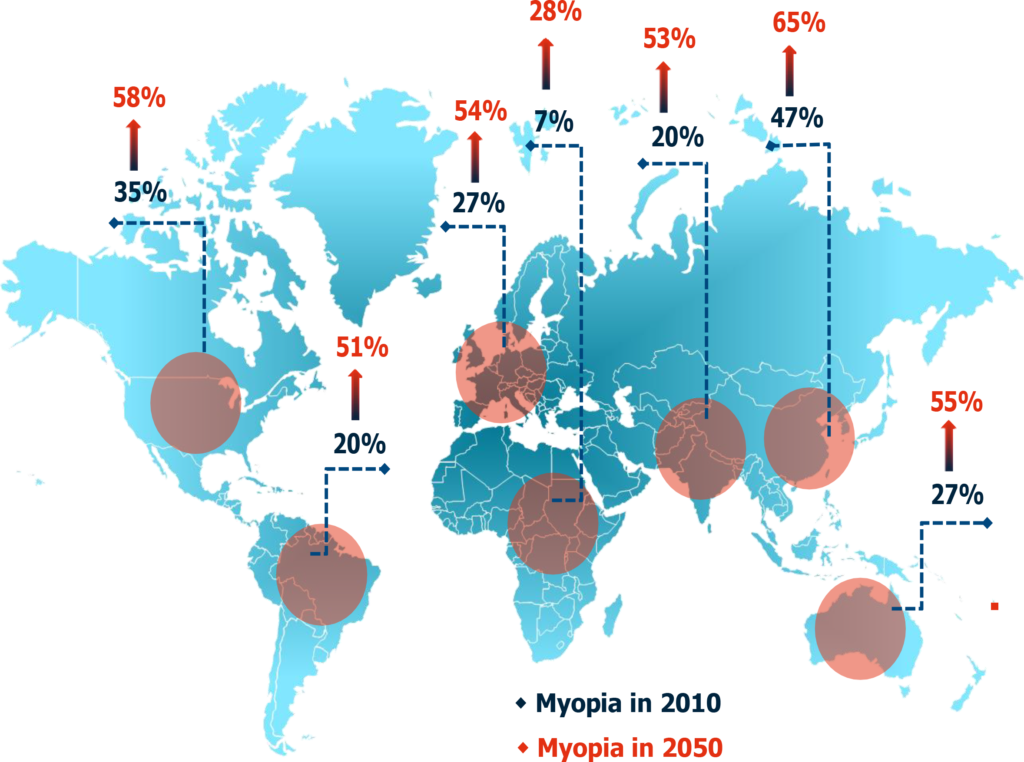

About 36.5% of fourth graders and 65.3% of the eighth graders in China have poor eyesight in 2018.

In Korea, the prevalence of myopia (SE ≤ -0.5 D) in children aged 5 –18 years is about 64.6%

Myopia prevalence is about 65% among Primary 6 (12yr old) pupils, and roughly 28% for those in Primary 1 (7yr old).

In the U.S., 40% of children have myopia in 2017, compared with 20% just 30 years ago.

Myopia prevalence is at 14.4% and 29.6% among 12 and 17 years old respectively in Australia.

Nearly one in five teenagers in the UK are myopic. Myopia is more than twice as prevalent among UK children now than in the 1960s (16.4% vs 7.2%).
Related Doctors
Consultant Ophthalmologist
Anterior Segment, Oculoplastic Surgeon & Pediatric Ophthalmology
Specialist Ophthalmologist
Head Of Pediatric Ophthalmology & Strabismus Unit
Patient Satisfaction Is Very Important To Us

I had my cataract surgery and lens implantation with Eye Consultants Clinic. What a beautiful experience! All the staff were very kind, helpful, and competent. Special thanks to the clinic manager for being so accommodating and caring in all of my inquiries. Thank you, Dr. Mohamed Awadalla for your dedication and for being best at what you do. Overall, I highly recommend Eye Consultants, they made sure that I get the best treatment possible.
I was a patient of Dr Ahmed El Khashab’s between 2018 and 2021, and had a retinal detachment surgery, a silicone oil removal surgery and a cataract surgery, as well as glaucoma surgery in another clinic but followed up with him. With no doubt in my mind, he is by far the best doctor I’ve ever come across. He is very patient, very informative and an absolute gem of a doctor. - Menna Aly
I had a cataract surgery in both eyes last week and now my vision is perfect. Thank you to the entire team at Eye Consultants Center and most especially to Dr. Ahmed El Khashab who performed my cataract surgery. It was an amazing experience and he is the best!
We are delighted to have an opportunity to express our gratitude and appreciation to Dr. Ahmed El Khashab and his staff for diligently caring for my mother's eye problems and her cataract surgery. They are not only most professional but always attentive to our needs and concerns. Dr. and his staff are eager to care for us as a hive of "busy bees". Thank you doctor.
I was diagnosed as having cataract in both my eyes and advised surgery.This was my very first experience and I was really nervous, but Dr Ahmed Al Khasheb assured me it will go well. I must say he is not only an expert in his field but also very kind and understanding. The surgery went well and now I have a perfect vision. I’m also thankful to the receptionists and the nurses at Eye Contact Center for being respectful and professional. I would definitely recommend this hospital and especially Dr Ahmed.
The whole team at Eye Consultants is very professional and Dr. Ahmed is special and recently performed cataract removal from both my eyes successfully. He has previously performed surgery on one eye to address a retinal detachment case. HIGHLY recommend him and his wonderful team.

